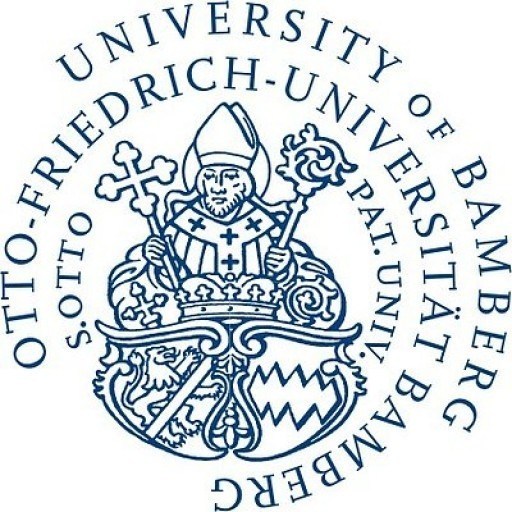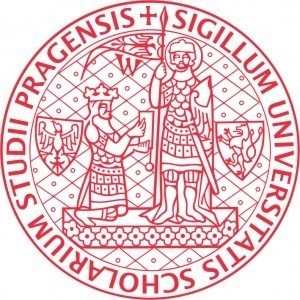Photos of university / #uni_mannheim
The Bachelor's programme in Political Science at the University of Mannheim offers students a comprehensive and interdisciplinary exploration of political systems, theories, and institutions. The curriculum is designed to provide a solid foundation in understanding the dynamics of political processes at both national and international levels. Throughout the programme, students engage with core topics such as comparative politics, international relations, political theory, and public policy, enabling them to analyze and interpret political phenomena critically and effectively.
The programme emphasizes a practical approach, encouraging students to develop analytical, research, and communication skills that are vital for careers in politics, diplomacy, journalism, and public administration. Students have the opportunity to specialize in areas such as European integration, security studies, or public administration, tailoring their educational experience to their interests and career aspirations. The programme is also structured to promote methodological competence, with training in qualitative and quantitative research methods, ensuring that graduates can conduct independent research and contribute to evidence-based policy-making.
Studying at Mannheim means being part of a vibrant academic community with access to experienced faculty members who are actively engaged in research and policy advisory roles. The university fosters an international environment, offering opportunities for exchange programmes, internships, and involvement in international projects, thereby preparing students for global challenges in politics and governance. The Bachelor's programme in Political Science aims to equip students with critical thinking, problem-solving abilities, and a nuanced understanding of political issues, making it an ideal choice for those committed to making a meaningful impact in society. Graduates will be well-prepared to pursue master's degrees or enter the workforce in various sectors such as government agencies, international organizations, NGOs, or the private sector.
Educational organisation
During the first semester, students extend their basic knowledge in the field of Quantitative Methods that they have obtained in their respective Bachelor programmes. The module "Advanced Methods" provides advanced skills in empirical social science methods, statistics and formal model building.During the second semester, students will take the basic modules "International Politics" and "Comparative Politics". They enhance students' core competencies in these two subfields through intellectually challenging lectures and intensive reading and discussion seminars. Additionally, students specialise by choosing one of three Research Modules which occupies the second and third semester of studies. The Research Module consists of three intensive seminars, and aims to add specific methodological tools and analytical capabilities to the skill set of MA candidates. In the final module, students write their MA thesis, a research paper that may well be the first step in a successful career in political science research.
Study abroad unit(s)
Students have numerous opportunities to spend time at other universities worldwide. The University of Mannheim has a huge network of partner universities, and credits will be awarded according to the terms of the learning agreement every student has to hand in before the trip. Students spending a year at the University of Nottingham or the University of Essex, UK, have the option of receiving a double degree.Internships
A research internship of six weeks (or a two-week summer school in Political Science) has to be completed during the summer break between the second and third semesters. The school's internship manager will assist students with finding an appropriate internship.Forms of assessment
The lectures in the first and second semesters are completed with a 90-minute written exam at the end of the semester. For the seminars, students will need to hand in a research paper (approx. 5,000-7,000 words, deadlines vary). The Master's thesis (time for completion: four months) should fulfil the necessary preconditions to be submitted as a research paper with a peer-reviewed journal in one of the disciplines of political science. ECTS allocation varies between 7-8 ECTS for normal seminars/lectures and 14 ECTS for the intensive research seminars. 30 ECTS points are awarded for the final module (6 ECTS for the thesis colloquium and workshop, 24 ECTS for the actual thesis).Course objectives
The MA in Political Science at Mannheim seeks to provide students with the tools to start a successful career. The programme is research oriented, and students will learn to master the tools of empirical research in political science, as well as improve their analytical skills. As graduates, students will have the necessary skills to pursue a career in political science research, international organisations and business.As Mannheim University is renowned for the analytical quality and the empirical basis of its comparative research, successful MA graduates can choose between a variety of career options, including further graduate studies in the Graduate School of Social Sciences and Economics at the University of Mannheim.
Language requirements
Good English language skills approved by an English language university entrance diploma (e.g., A-level) or Bachelor's degree. In case none of these documents can be submitted one of the following language tests is required:- Test of English as a Foreign Language
- Internet-Based Test (TOEFL iBT) with at least 79 points
- Computer-Based Test (CBT) with at least 213 points
- Paper-Based Test (PBT) with at least 550 points
- Certificate of Proficiency in English (CPE) with at least Level C
- Certificate in Advanced English (CAE) with at least Level C
- International English Language Testing System - Academic Test (IELTS) with at least Band 6.0
Academic requirements
Admission requires a Bachelor's degree in political science or a subject-related degree, which was completed with a grade of at least "good" (2.5 German grade equivalent) or better. If a Bachelor's degree has not yet been completed, a current transcript of records has to be submitted. This document will be the basis for admission. You will also need a certificate from at least one course in statistical analysis and/or research methods, which was completed with a grade of at least "good" (2.5) or better.Your good English language skills have to be certified by an English-language university entrance diploma (e.g. A-level) or Bachelor's degree. In the case that none of these documents can be submitted, language tests are required (see language requirements).
Admission also requires a personal statement in English or German with a maximum of 500 words. This letter should explain the reasons for wanting to follow the branch of study (political science) and for wanting to pursue the Master's degree at the University of Mannheim. Furthermore, the relation to undergraduate studies should be explained, as well as the expectations concerning the degree and future career plans.
Furthermore, a sample of written work in political science in English or German is requested. This sample should underline the ability of the applicant to do research in political scientific and should not exceed 5,000 words.
Enrolment fees
139.35 EUR per semester; a semester ticket covering public transport in the Mannheim-Heidelberg metropolitan area is available at an additional cost of 155 EUR.Costs of living
Approx. 750-850 EUR per month to cover all personal expensesJob opportunities
About 50 positions as student research assistants are available especially for MA students.Arrival support
The International Office provides support with all the formalities (registration, etc.). The programme manager Political Science provides detailed information about the study programme and helps with the first steps at the beginning of the first semester.Services and support for international students
For an easier start, the four-week International Summer or Winter Academy for German Language and Culture of the University of Mannheim provides international and exchange students with or without previous knowledge of German the opportunity to learn the language before the semester starts. There are cultural programmes including concerts, excursions and sports that accompany the language classes.The International Office offers special courses for international students throughout the semester, e.g. language and cultural courses. Some of the later ones are also taught in English.
A buddy programme is organised by the student organisation VISUM and matches a German student to an international student, who registers for the service with the online application form. The German buddy will help foreign students to adjust to German life, the University, and everything around it. He or she can answer questions, help with problems, may offer a pick-up service from the train station, the airport, or accompany the exchange student to various special VISUM buddy events throughout the semester - a lot of fun included!
Accommodation
The International Office assigns dorm rooms to international students and offers support finding private rooms.Student halls of residence are the ideal place to get to know not only German students but also fellow students from all over the world!
Depending on the hall, you will live with between two and fifteen people in a shared apartment. Everyone has his or her own room but the kitchen, bathroom, and toilet are communal and shared with two to 15 other students. There are single rooms and cheaper double rooms with two beds in one room. The communal areas (kitchen, bathroom, and toilet) are regularly cleaned by the Studentenwerk Mannheim (SWM, Mannheim's student union).
Additionally, the International Office offers a very limited number of one bedroom apartments with a small in-room kitchen and bathroom. The kitchens are fully equipped with cooking facilities and a refrigerator.
All rooms have a bed (as well as bed linens, blanket, and pillow), a cupboard, a desk, a swivel chair, a bookcase, a rolling cabinet, a towel rail, a wash basin, a wall mirror, a TV connection, a telephone connection, and internet connection. In a double room there are two beds, two chairs, two desks, two swivel chairs, two cupboards, two bookcases, two rolling cabinets, two visitors' chairs and two internet connections.










